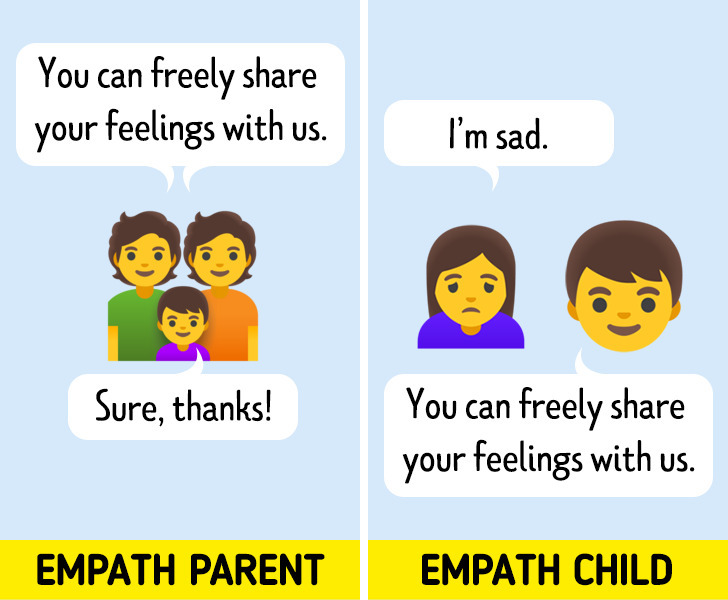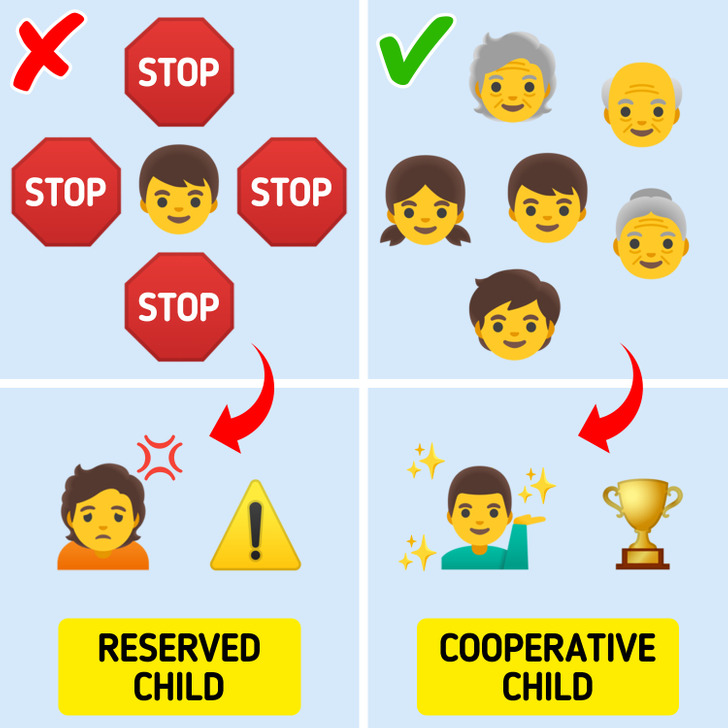
14 Helpful Parenting Tips Every Parent Needs | Improve Your Parenting Skills
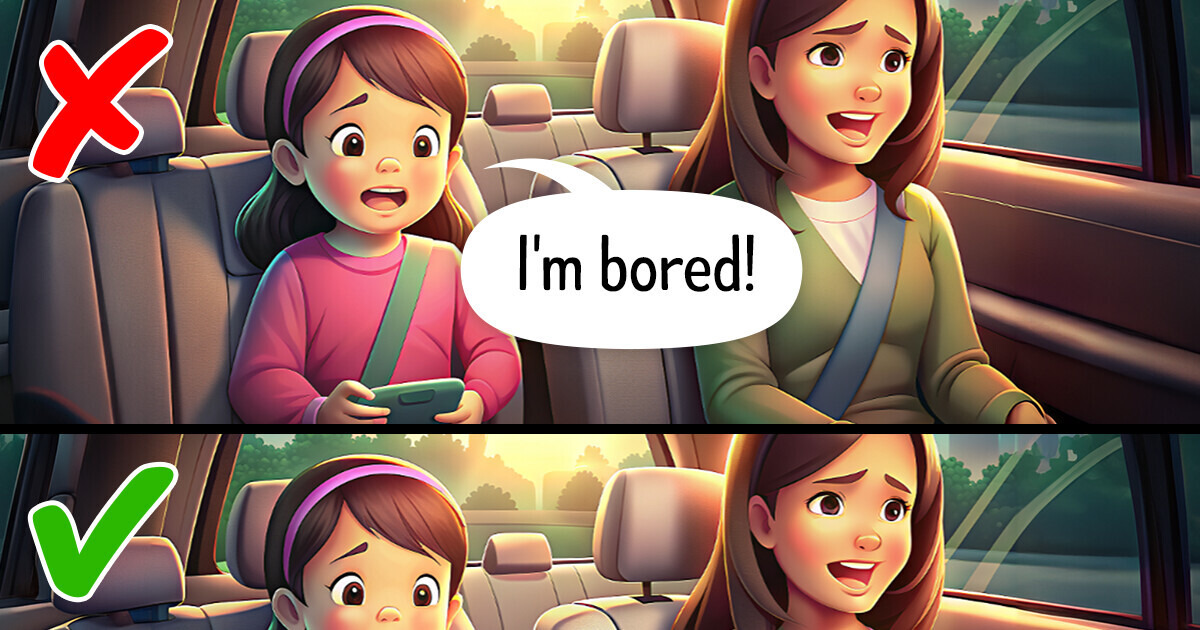
No parent knows everything when it comes to parenting and they do make mistakes as they keep learning. And it’s okay to make errors as long as you treat them as teaching moments and don’t repeat them. Either it’s something practical or something mental, parents are responsible for their children’s safety and well-being. That’s why we have chosen some important areas that all parents could focus on being better at.
Now I’ve Seen Everything has gathered a few parenting tips, but we are in no way experts on the matter. Getting a professional’s opinion is still the best choice if you want to improve your behavior towards your kids.
1. Develop empathy within them
To nurture empathy in your child, create a safe space for them to talk about their feelings freely and acknowledge them. You can also practice creating scenarios with them. Ask them to imagine if their friend had recently lost their favorite toy.
Your child can empathize with them by saying, “I totally understand what you’re going through,” or “You can freely share your feelings with me.” This will help them understand being in someone else’s shoes and how to come up with a positive solution.
2. Sterilize bottles and pacifiers by boiling them
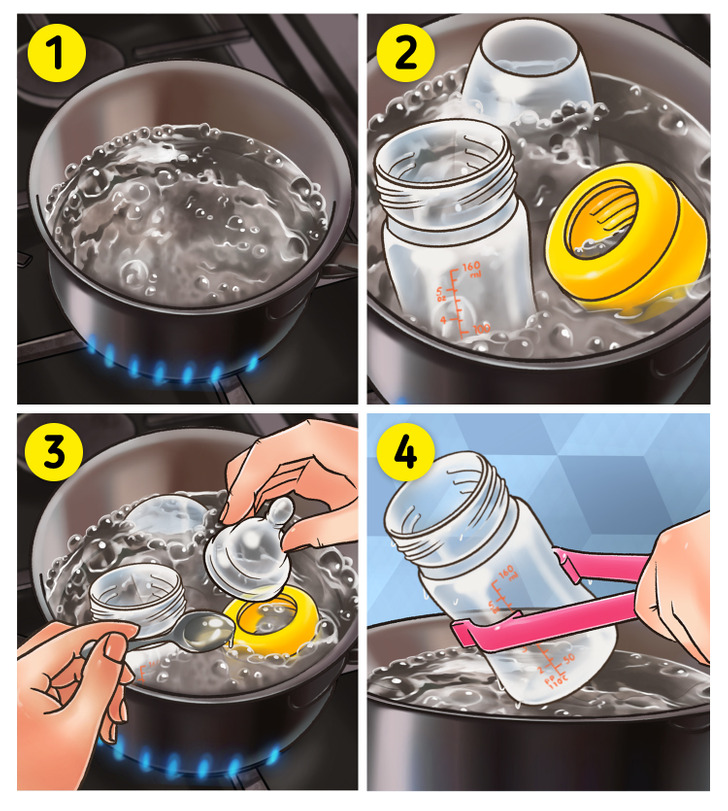
- Boil a good amount of water in a pot.
- Disassemble the bottle and introduce all its parts into the boiling water. Do this carefully and leave the parts well immersed in the water. Make sure there is no air left inside the bottle. Boil for about 5 minutes. It is better if the pieces do not touch each other. Follow the same procedure for the pacifiers.
- Add the bottle nipple for the last 3 minutes.
- Remove from the hot water with caution.
3. Childproof electrical outlets with the help of the adhesive top from baby wipe packaging
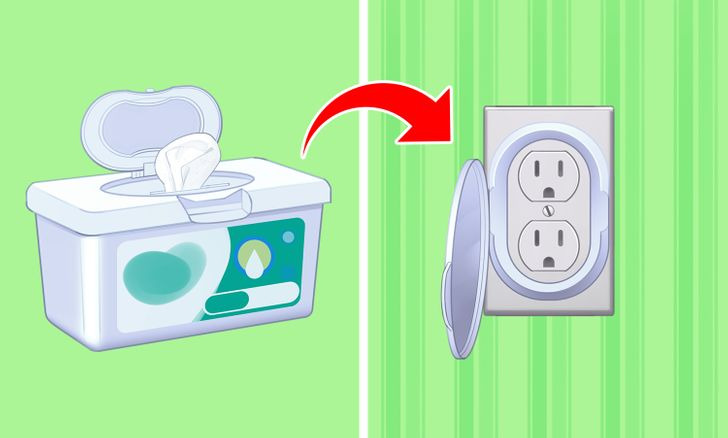
After you’ve finished using the pack of baby wipes, remove the plastic cover from the package and place it over your electric outlets. This will cover the outlets by closing them, preventing toddlers from getting shocked.
4. Remove bulky jackets or coats while on the car seat
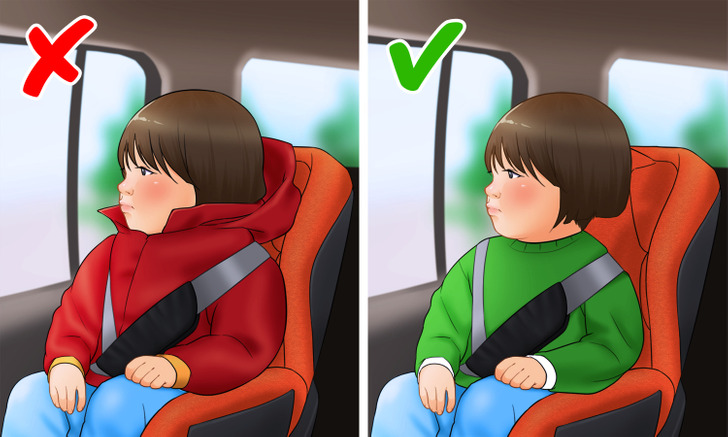
It’s very important to remove any clothing that can increase the distance between the child’s body and the harness when placing the child in the seat, as this may prevent the child from being properly secured to the seat. If temperatures are very low, you can place a blanket over the child’s head after having correctly adjusted the seat belt.
5. Use a balloon to help you find your child in a crowd
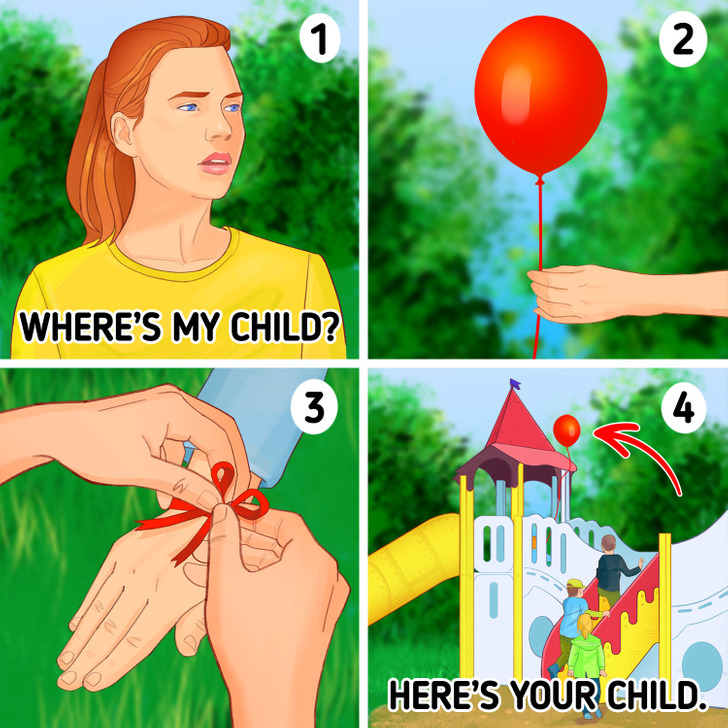
1. If you lose sight of your child in a crowded park, this tip will help you keep your child in sight.
2. Grab a balloon with a ribbon tied to its end.
3. Tie the ribbon around your child’s arm.
4. Set them free in the park. The floating balloon will help you keep an eye on the child when they’re playing in the crowd.
6. Teach them the importance of coordination
Indulge your kids in activities that involve the participation of peers and elders. When you don’t let your child explore the world with different age groups, the less interaction they have and the more aggressive and self-centered they may become.
The best way to solve this is by allowing them to hang out with people of their age group under the supervision of their grandparents. In this way, they learn how to deal with friends and elders, which in turn, will help them learn more about teamwork and support.
7. Avoid protecting them from consequences

Helicopter parenting is a style of parenting where the parents are overprotective or become overly involved in their children’s lives. This stops them from becoming independent, daring, and problem-solving on their own. It also encourages bratty behavior.
You might do everything for your child with nothing but good intentions, but at one point, you may find yourselves surprised when they don’t respect these gestures. You’ll be better off letting them lose in order for them to gain wisdom and experience about things to do and not do.
8. Help nurture optimism in them
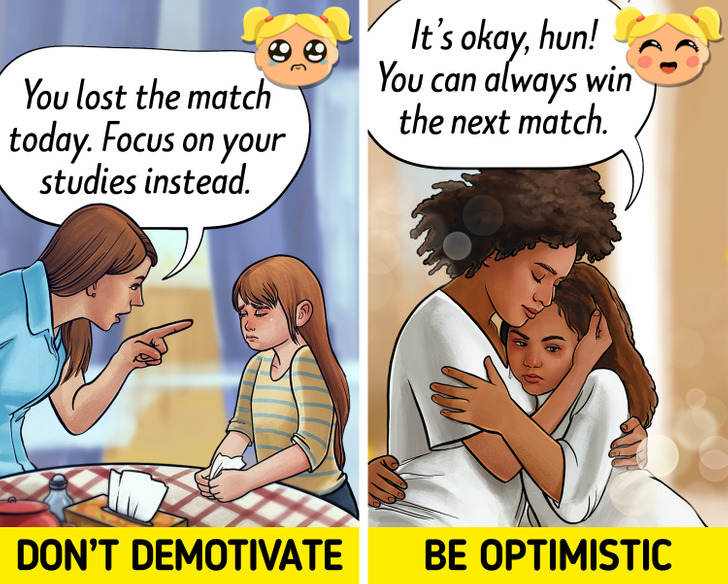
Kids feel the pressure too when they don’t accomplish the goals they’ve set for themselves. So, when you’re supporting your child, assure them that it is okay to make mistakes. You can even mention that parents also have moments like this. This leads to raising productive kids and it requires patience and the utmost confidence in their talents.
9. Keep conversations short during trips
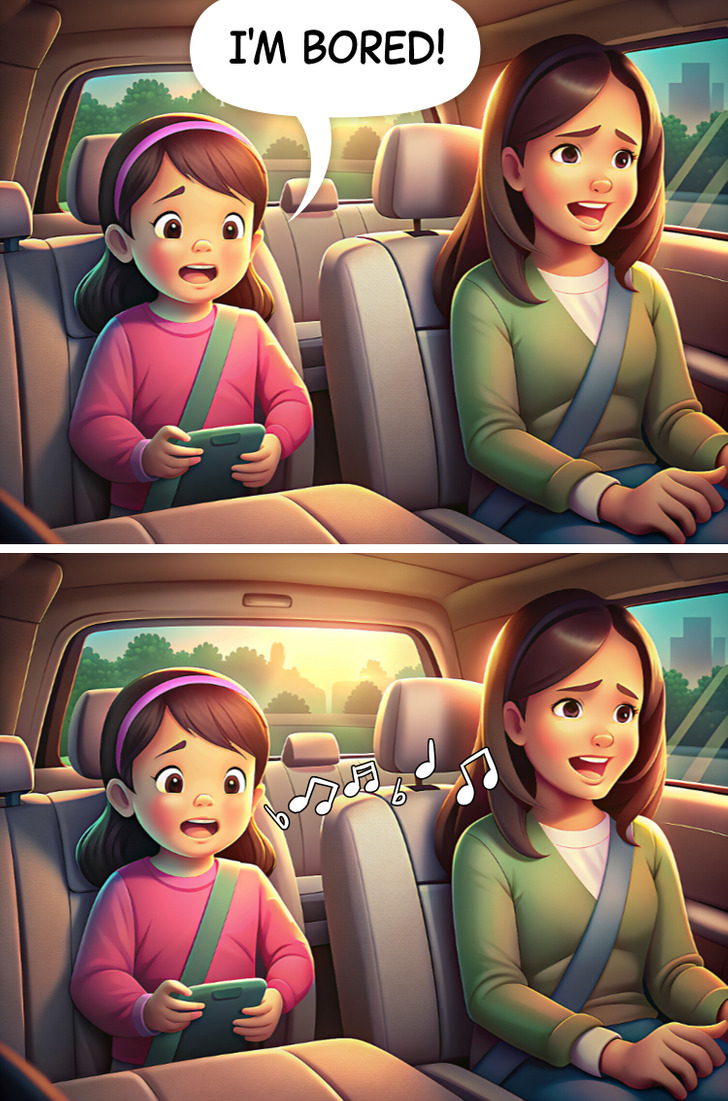
It’s important for children to understand that they should behave calmly in the car, as shouting or other actions can be distracting to the driver. For this reason, short conversations can be very successful in keeping them entertained and supervised.
Discussing the surroundings, talking about the places you’re about to visit, or playing fun games will help you to have a calm and enjoyable trip. At the same time, this will prevent motion sickness caused by the use of cell phones or tablets.
10. Don’t compensate them with materialistic goodies
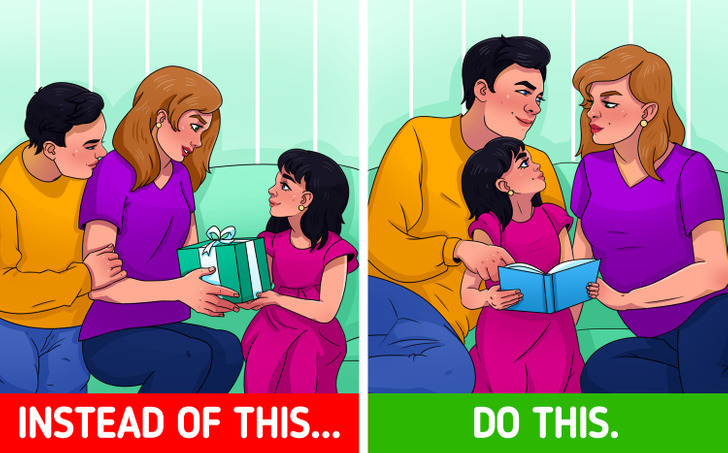
Busy parents tend to make up for their lack of quality time with their children by gifting them materialistic things, which eventually makes the kids materialistic too. Many parents give money to their children without teaching them how to save. This results in having kids ask for more money with a mindset that they need it no matter what. When you give financial liberty to your kids, it spoils them to the core.
11. Find the right moment to tell them about your divorce

First of all, along with your partner, think about what you will say to your children and when you will do it. When getting a divorce, it’s good to talk to your kids about the situation on a day that allows for spending some time together, like the weekend. Avoid letting your children know that you’re splitting up on a holiday, right before bedtime or school, or during an emotional moment.
Be prepared to have multiple conversations about the decision, as just one is not enough. If it’s difficult to arrange all these details with your partner, consider getting help from a mediator or counselor.
12. Choose carefully when to apologize to your child when they are disappointed
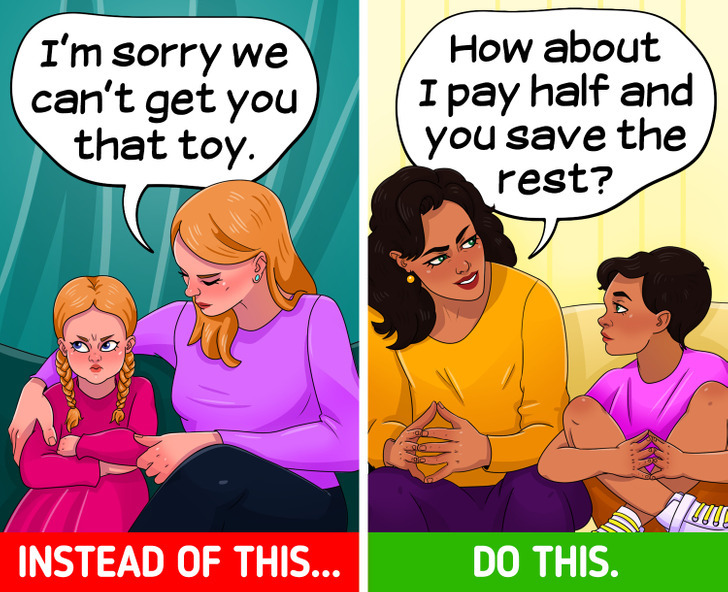
There are valid moments in a family where it is appropriate for you to apologize. For instance, when you mistakenly throw away our kid’s precious painting. But there are also instances where you don’t need to be remorseful, like not being able to get your child their favorite toy. You can surely empathize with them, just don’t apologize for it.
You can try saying something like, “I know that toy means so much to you, but it’s not in our budget,” or “The toy looks great! How about we team up on this one? I can pay this XYZ amount for it, and you save the rest.” This will help your child have some control over the decision and it will make them responsible enough to earn special things rather than just simply being given things by you.
13. Put a pool noodle on your baby’s walker
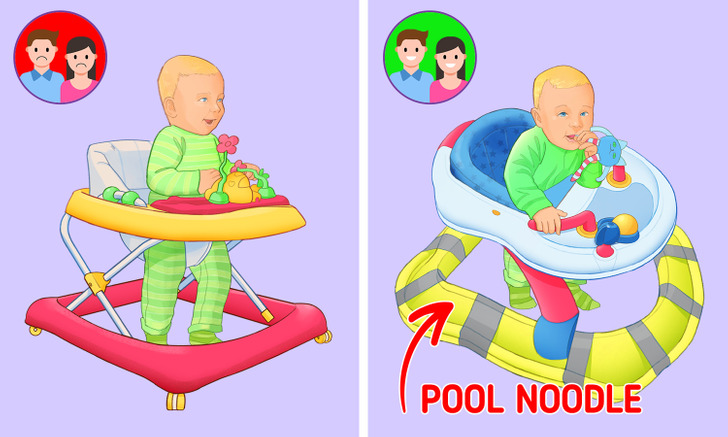
The pool noodle will act as a bumper that will save your walls from damage and your ankles from injuries. All you have to do is make a slit on the pool noodle at one side, cut it into lengths, and then fit it around the edge of the baby walker.
14. Never discourage them
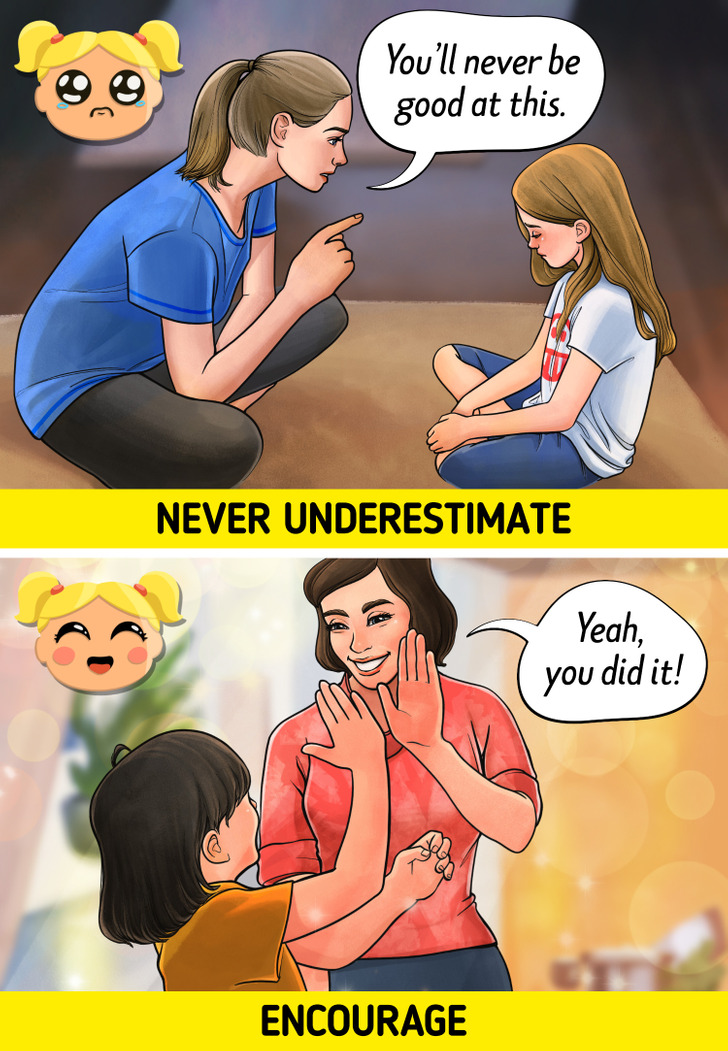
Don’t underestimate your kid’s skills or tell them they’re not good enough at something. These instances leave a permanent emotional scar in their mind, and they’ll have to face the aftermath later in life. If their plans don’t sound good to you, try not to bring them down, because things always have a way of working out later.
Keep supporting their ambitions, no matter if they fail. Sometimes it is necessary to taste failure to relish the success later.
What do you think is the most challenging thing about being a parent? What are the best tips your own parents have taught you about parenting?
Comments
Related Reads
8 Job Interview Tips to Help You Impress Your Recruiter

Healthy Habits and Practices You’ll Only Find Exclusively in Japan

20 Creepy Kids Who Made Their Families Think They Were Inside a Horror Movie

13 Celebrities Who Decided to Change Their Appearance and Made Us Gasp

A Little Girl Was Bullied and Called a “Monster” Because of Her Birthmark, Now She Found Her Inner Princess
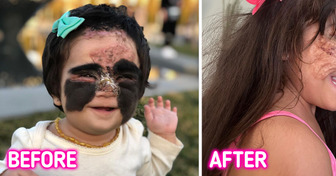
21 Women Who Showed a Small Change to Your Nose Can Go a Long Way

16 Celebrities Who Have Aged Like Fine Wine and Are Even Hotter Now

15+ Movie Moments That Were Not a Part of the Script

10 Common Fashion Mistakes That Secretly Age You

12 People Who’ve Changed So Drastically, It’s Hard to Believe They’re the Same

17 Сelebrity Сhildren Whose Looks Are Just as Striking as Their Star Parents

We Modernized 18 Vintage Hollywood Icons — You Won’t Believe How Different They Look

